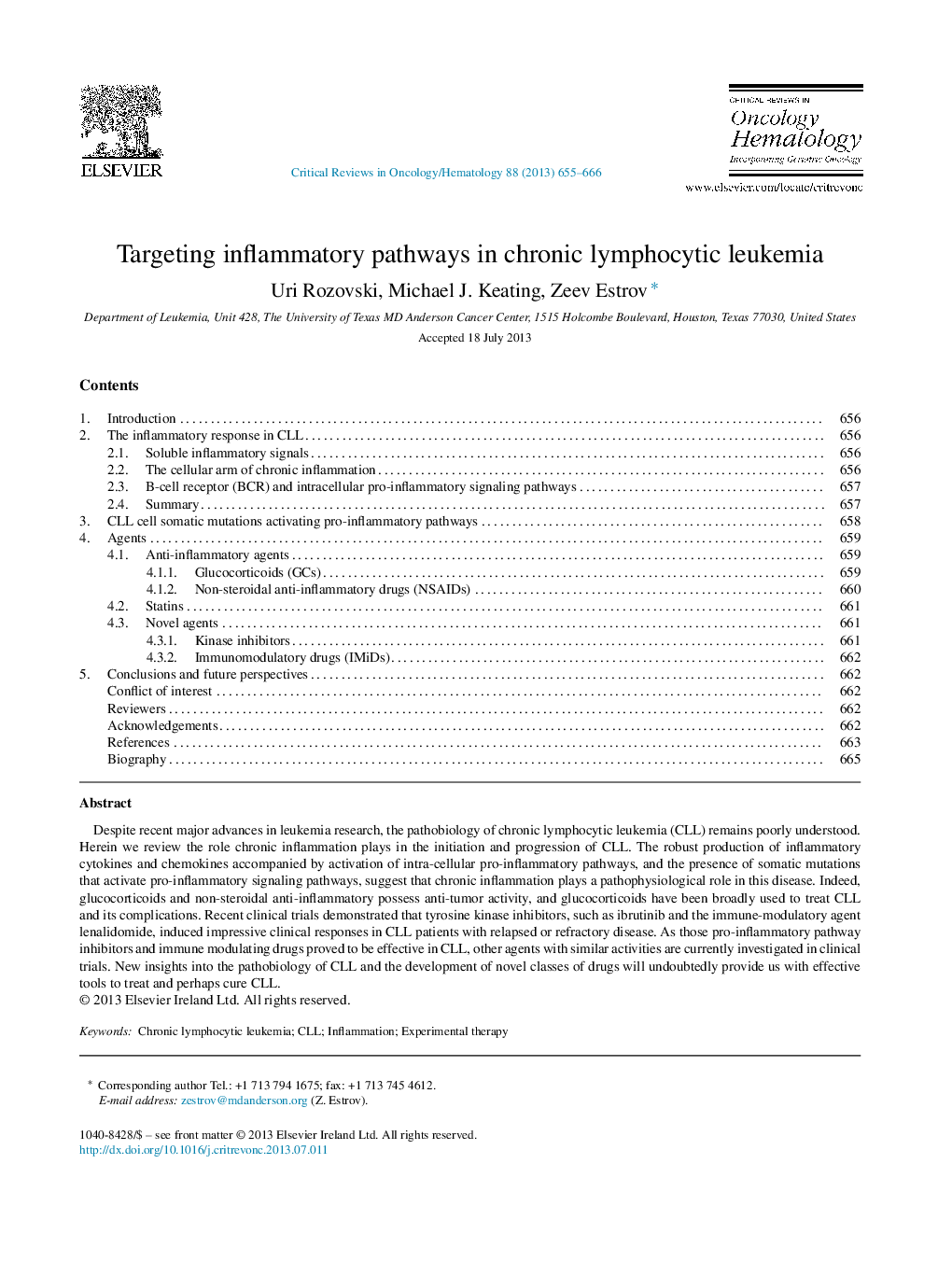| Article ID | Journal | Published Year | Pages | File Type |
|---|---|---|---|---|
| 3328827 | Critical Reviews in Oncology/Hematology | 2013 | 12 Pages |
Despite recent major advances in leukemia research, the pathobiology of chronic lymphocytic leukemia (CLL) remains poorly understood. Herein we review the role chronic inflammation plays in the initiation and progression of CLL. The robust production of inflammatory cytokines and chemokines accompanied by activation of intra-cellular pro-inflammatory pathways, and the presence of somatic mutations that activate pro-inflammatory signaling pathways, suggest that chronic inflammation plays a pathophysiological role in this disease. Indeed, glucocorticoids and non-steroidal anti-inflammatory possess anti-tumor activity, and glucocorticoids have been broadly used to treat CLL and its complications. Recent clinical trials demonstrated that tyrosine kinase inhibitors, such as ibrutinib and the immune-modulatory agent lenalidomide, induced impressive clinical responses in CLL patients with relapsed or refractory disease. As those pro-inflammatory pathway inhibitors and immune modulating drugs proved to be effective in CLL, other agents with similar activities are currently investigated in clinical trials. New insights into the pathobiology of CLL and the development of novel classes of drugs will undoubtedly provide us with effective tools to treat and perhaps cure CLL.
